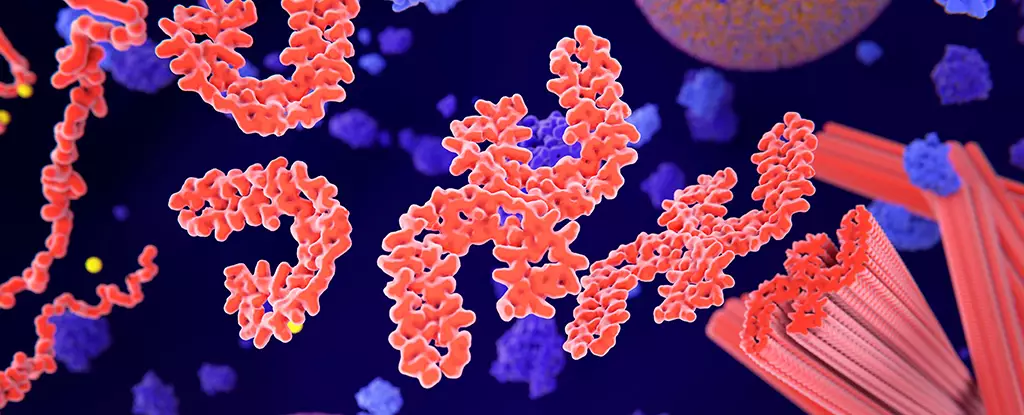Alzheimer’s disease is an insidious condition that gradually robs individuals of their memory and cognitive abilities. As researchers delve deeper into the mechanisms behind this enigmatic disorder, significant strides are being made in the development of innovative treatments. One such advancement is the drug RI-AG03, a peptide inhibitor that holds promise in addressing the harmful tangles and clumps associated with the disease. Recent studies reveal intriguing results that could mark a significant turning point in the fight against Alzheimer’s.
Alzheimer’s disease is primarily linked to the accumulation of tau proteins in the brain, which, when functioning normally, serve to support neuronal stability. However, in affected individuals, these proteins become hyperphosphorylated, leading to the formation of toxic fibrils that disrupt communication between neurons. This clumping of tau proteins is at the core of neuronal degeneration. The challenge in treating Alzheimer’s lies in finding a way to inhibit this aggregation without adversely affecting other crucial proteins in the brain.
Research led by an international team, featuring insights from neuroscientists like Amritpal Mudher and Anthony Aggidis from the University of Southampton, highlights RI-AG03’s focused approach. Rather than attempting a broad-spectrum solution, RI-AG03 targets dual “hotspots” on tau proteins specifically linked to aggregation, akin to a tailored key that fits into a lock.
The experimental results surrounding RI-AG03 are compelling. Initial tests conducted on fruit flies and human cells demonstrate a notable reduction in tau protein tangling and neuron degeneration. In fruit flies, researchers recorded an impressive lifespan extension of up to 35 percent, showcasing the drug’s potential effectiveness. Such results are promising — often, successful outcomes in animal models serve as precursors to viable human treatments.
It’s important to recognize that the significance of RI-AG03 arises not only from its efficacy but also from its design. By employing computational biology techniques, scientists have engineered a drug that specifically targets the fibril-forming regions of tau proteins. This precision minimizes the likelihood of unintended consequences, a common pitfall with conventional aggregation inhibitors that can disrupt numerous protein interactions throughout the brain.
One of the critical challenges in any drug development is ensuring safety and reducing side effects. Given the brain’s complex ecosystem, drug-induced changes must be meticulously targeted. As noted by Aggidis, traditional tau aggregation inhibitors have been marred by significant side effects due to their lack of specificity. RI-AG03, with its directed design, shows promise in circumventing some of these issues, making it a potentially safer alternative for patients.
The specificity of RI-AG03 is crucial, particularly in a field where many candidates have failed to translate success in animal models into clinical benefits for humans. The intricacies of human physiology often yield unpredictable outcomes, thus the importance of careful preclinical assessments cannot be overstated.
Looking forward, the path for RI-AG03 involves further testing, starting with mouse models before proceeding to clinical trials in humans. While the research team expresses optimism regarding the drug’s future, it also recognizes the lingering uncertainties that characterize the transition from laboratory success to therapeutic application in humans.
The commitment of researchers to refine and test RI-AG03 reflects a growing understanding of Alzheimer’s pathology and the need for effective treatments. “Our research represents an important step toward creating treatments that can prevent the progression of diseases like Alzheimer’s,” Aggidis asserts, emphasizing a hopeful outlook.
Alzheimer’s disease continues to pose significant challenges, both for those affected and for the scientific community. The advent of promising research like RI-AG03 could potentially alter the treatment landscape, providing renewed hope to countless families desperate for effective therapies. As researchers push the boundaries of our understanding, innovations in drug design may soon lead to breakthroughs that enable us to combat this devastating illness more effectively.


Leave a Reply